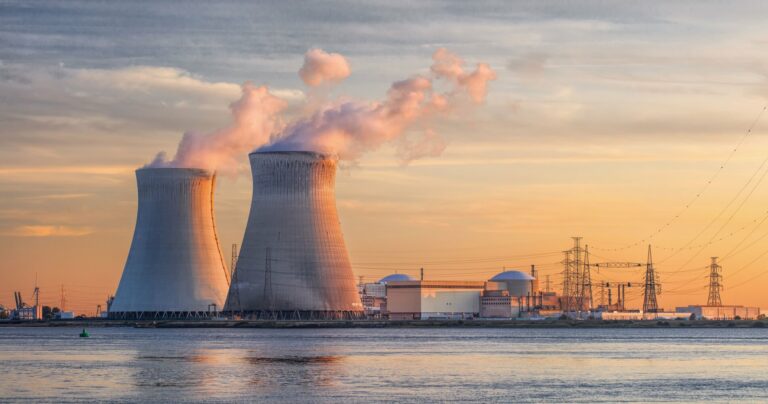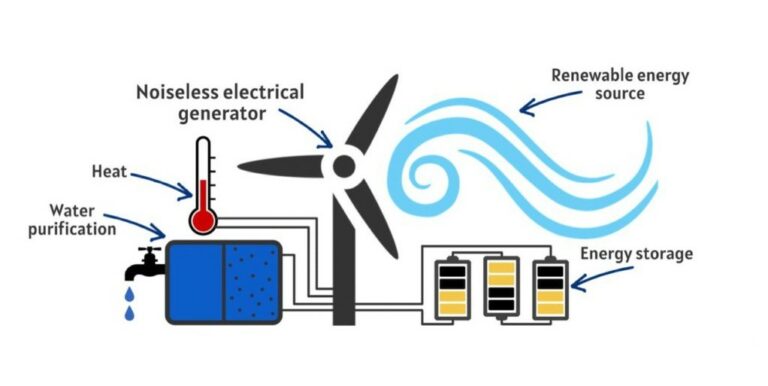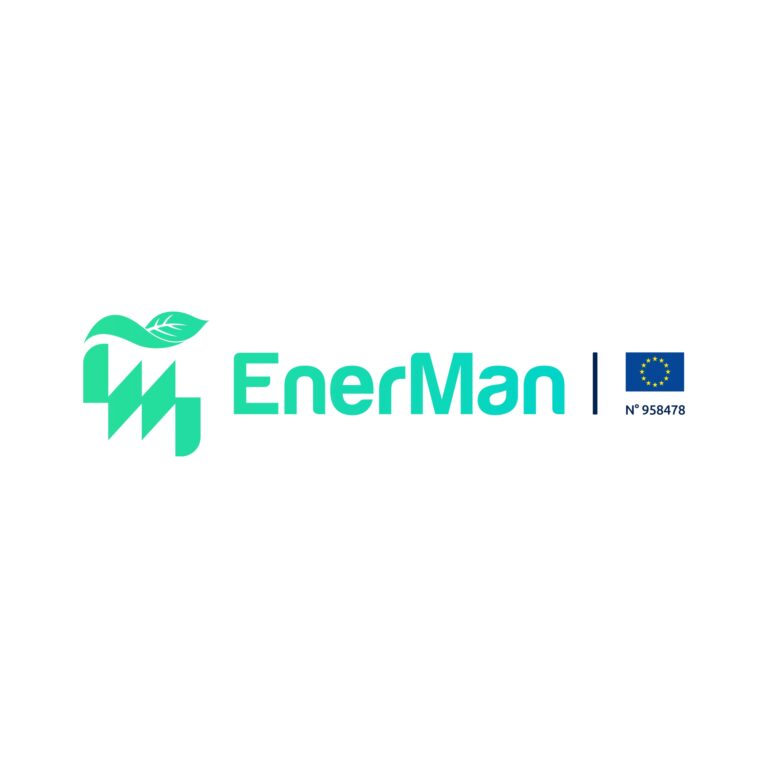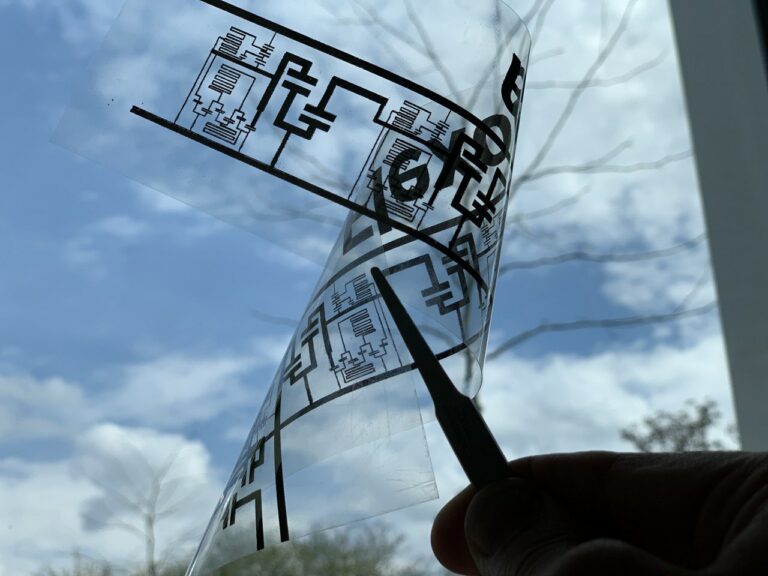Knowledge Co-Production Spaces: Raising Awareness about Climate Change
Facing climate change and its consequences is usually discussed in terms of the technological challenges we have to face. However, any effort can only succeed with most of the population favoring the necessary changes. In public debate, the agreement of broad parts of society is often just a priori assumed – a state, however, which is not necessarily given. Social processes are vital to raising awareness about climate change.
Today, we are talking to Eduardo Noboa, who creates knowledge co-production spaces where these social processes are channeled. Eduardo works for the BMW Foundation, the philanthropic arm of the BMW Group, and he collaborates with several universities, e.g., Leuphana University of Lüneburg, Uni Hamburg, University for Peace, and Universidad Andina Simon Bolivar. He is a transdisciplinary researcher.
Why did You Start Organizing the Co-production Spaces?
I have always worked on climate change, urban development, sustainability, and participation in governance. As such, I focused on the national energy sector in different countries for a long time. We modeled quantitative scenarios about supply and demand on historical data. Then, we projected them into the future by creating different assumptions, such as policy, technological or behavioral changes. Here, it is crucial to get the premises right.
Later, I changed to qualitative studies about democratic, participatory processes. Those are more complex because they are about interests, beliefs, and values.
Finally, I tried to connect the qualitative to the quantitative by translating the values into models and numbers: How much would it cost to implement what the people want? What is the best for the people according to their interests?
The idea here is to create an interference between democracy and technocracy: Historically, the energy sector was always technocratic, governed by companies and consultants. Nowadays, we have learned that we need to involve everybody since the energy sector is touching too many spheres, such as consumers or indigenous people. As such, I have been exploring the energy sector’s political areas to understand the supply, demand, and transformation challenges.
What is a Knowledge Co-production Space?
You take different actors and put them all in one single room. With the correct questions, we scientifically guide the decision-making process, such as understanding the problems of energy systems, their solutions, and the strategies to implement those solutions toward a desirable scenario.
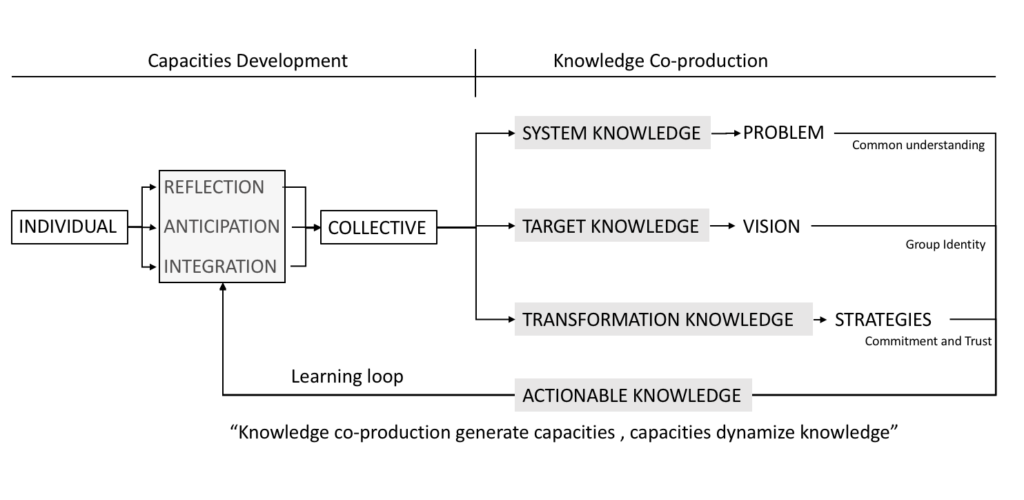
During the process, three types of knowledge are produced:
- System knowledge: Understanding the context of a system and its capacity for change
- Target knowledge: Defines the scope of action and problem-solving within a system
- Transformation knowledge: Encompasses the strategies of how to implement the changes in the system
Together, they are forming “actionable knowledge “, which is knowledge to drive action. To produce knowledge, we are stimulating individual and collective capacities. Such capacities can be divided into three categories:
- Reflection: the capacity to think critically about and understand the problem within the system
- Anticipation: the capacity to look ahead and envision alternative futures
- Integration: the capacity to unite different knowledge into one single model
The main challenge of this process is to identify the common narratives, the common challenges, and the common threats that hold the community together. Then, in this process of knowledge co-production, social capital is created, which encompasses the will to mobilize institutions, organizations, and resources to institute innovation. The idea is not to do it once but to get the wheel rolling: People start to create common projects, which can lead to practical changes because they trust each other through a culture of collaboration, which we created in the process.
This is part of transdisciplinary research: We take all kinds of input of knowledge, both scientific and non-scientific. For example, practitioners’ knowledge tends to be more intuitive and experiential, whereas scientific knowledge is more abstract and analytical. We are taking both and aiming to merge them into a comprehensive solution.

How do You Assemble these Meetings?
A good amount of people for the workshops is about 30, a maximum of 40 people. The creation process depends on the phase and the challenge. The idea is to assemble all sectors of society, which are government, business, civil society, and academia.
In the first stage of these meetings, we group the people of all sectors among themselves and make them solve a problem. Then, the solutions are shared with the other sectors. This approach creates awareness that other sectors have different goals and values.
Once this awareness is established, you can mix them and create solutions considering different perspectives. This is what we call the process of multisectoral knowledge co-production. It is about utilizing collective intelligence. In other words, how can a group of people produce and develop solutions as a collective unit?
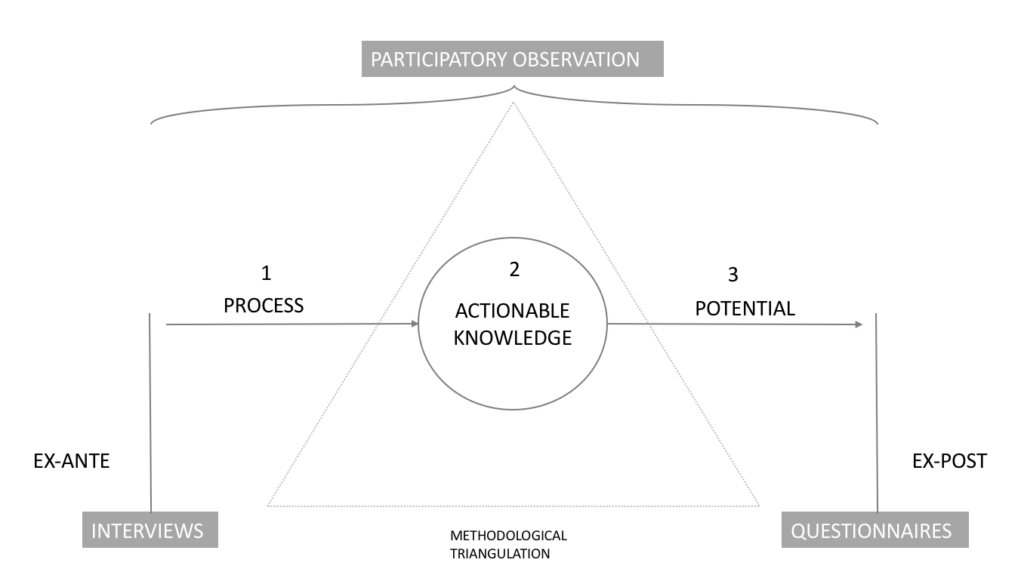
So far, we have been talking directly about meetings that led to knowledge co-production. The entire process, however, also involves ex-ante interviews and ex-post questionnaires, which is called methodological triangulation and is shown in the graph above. The ex-ante interviews serve as a selection process, as the correct selection of participants is essential for the output of the process. You need to find out who they are, what their role is, and what knowledge they already have. The knowledge co-production process aims to combine and integrate different kinds of knowledge. The interview gives you an idea of who they are individually and how you can organize them effectively in groups. The ex-post questionnaires are there to validate the process: Did the stakeholders feel it was good in terms of process, in terms of knowledge coproduced, and in terms of actors?
The Bigger Picture
Researching “What is innovation?” leads to conceptual approaches such as the Triple Helix Approach or Transition Management, whose basics are similar to ours. The three helixes are government, civil society, and business. To create innovation, governments must also include civil society and business. The theories of innovation have to be connected with considerations about games of power and sustainability as a vision. This is a normative approach, meaning the end goal is already known, e.g., achieving specific values or more sustainability. A direction is also given by the Agenda 2030 for Sustainable Development Goals of the UN, which are also very normative since they are setting the values.
Each process is different according to the context. Global narratives have to be translated into local ones with other social and environmental challenges. For example, in the Amazon region, the rainforest, indigenous people, oil exploitation, and different countries’ cosmovisions must be considered. The challenge is to translate that to the local narrative.
How do You Bring People to Enact the Changes?
Every technological change begins with a cultural shift. If the culture is prepared, they will adopt it. This is about values and societal change. Let me give you an example:
There will be no change if fossil fuels are cheaper than renewable solutions. A few people will change independently, but most will choose the more economical option. The problem is that fossil fuels would already be more costly because of the externalities, such as environmental and social impacts, but they are subsidized globally. What you have to do first is to make the costs of all technologies more transparent and show the actual price, as well as consider the social-environmental impact. In this case, fossil fuels will surely be more expensive, so there would be an option that is cheaper and more environmentally friendly. The UNFCCC recognizes market-based mechanisms, like carbon markets, as critical tools for reducing greenhouse gas emissions. These markets assign value to carbon emissions, incentivizing reductions and supporting climate change mitigation in line with global sustainability goals. As long as fossil fuels are more affordable, a transition is impossible. If fairness is created by having the same price, they could compete freely, and then people can see the best solution.
Whom to Contact?
Are you feeling inspired by this exciting idea and eager to explore more? Reach out to Eduardo for a delightful discussion.
Further Reading
- Energy policy and transdisciplinary transition management arenas in illiberal democracies: A conceptual framework
- Building a Coalition with Depoliticized Sustainability Discourse: The Case of a Transdisciplinary Transition Management Arena in Peru



